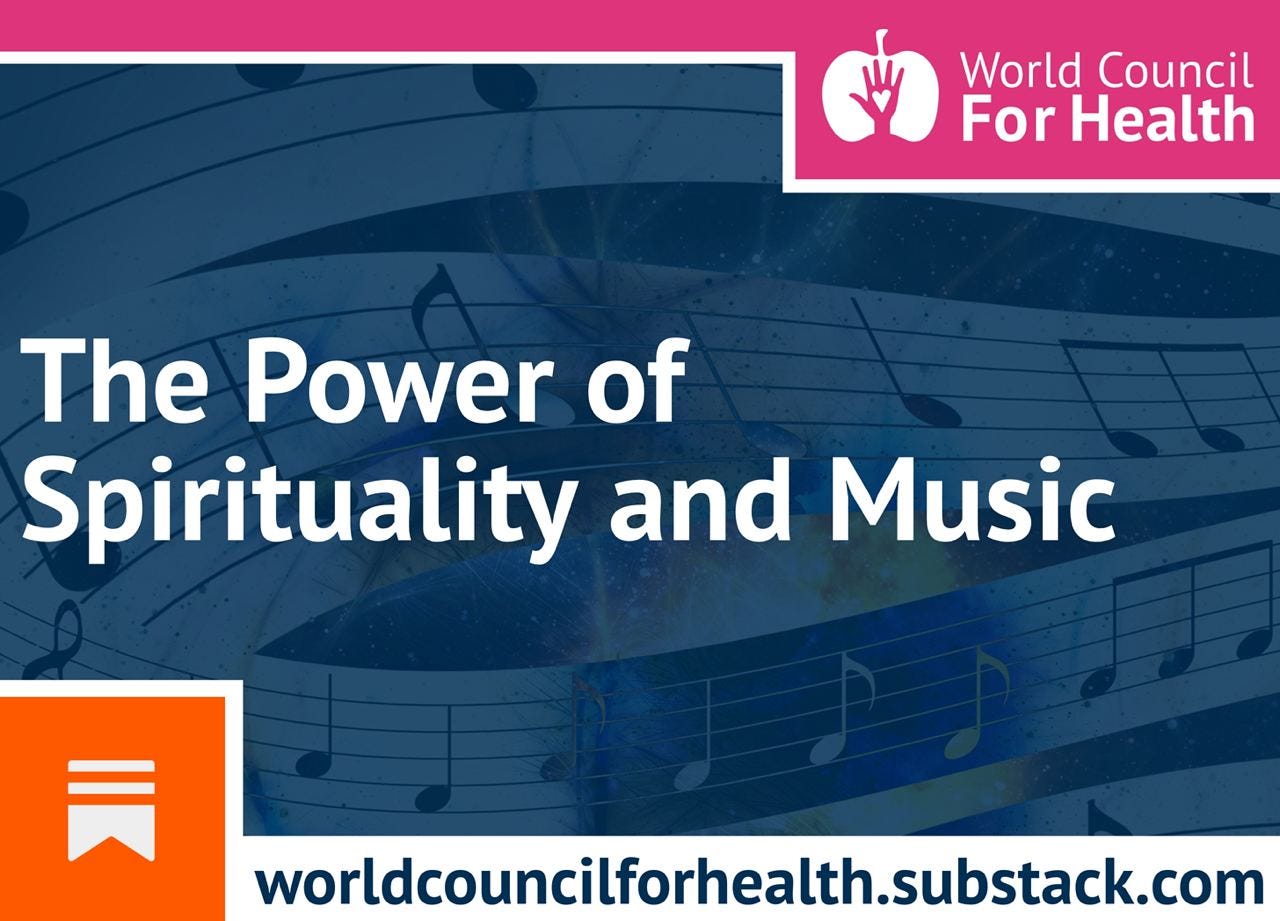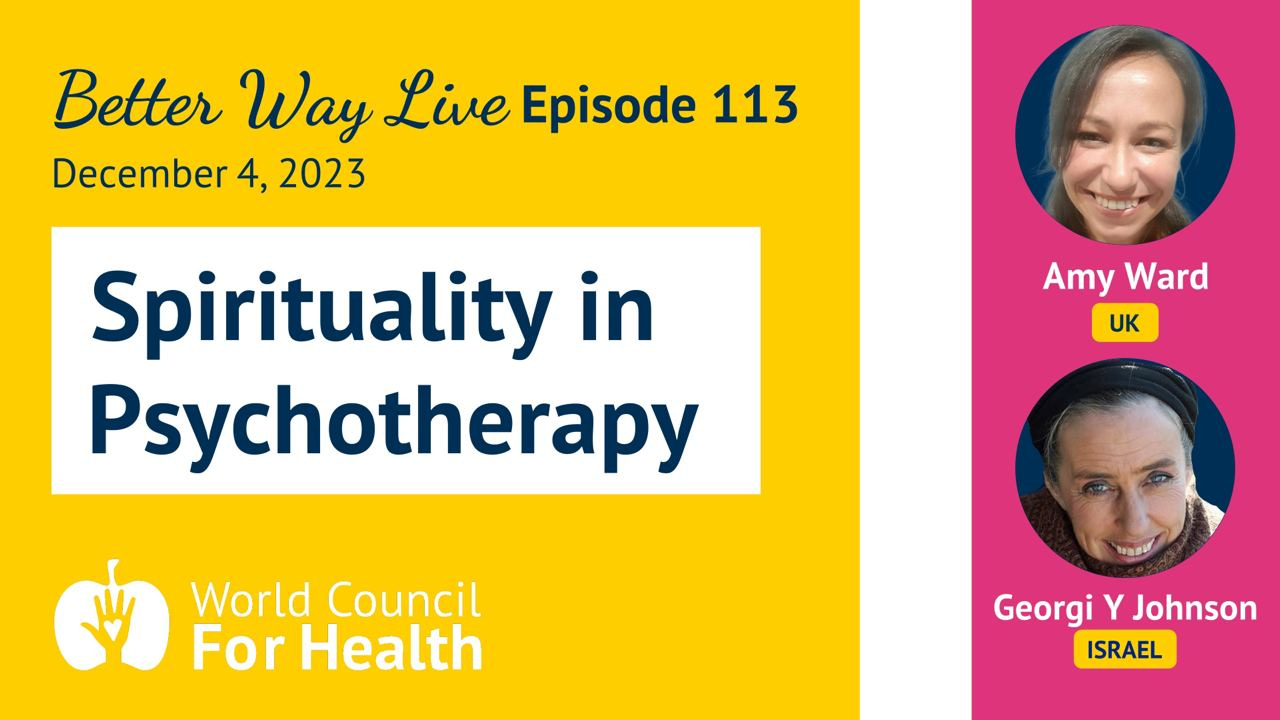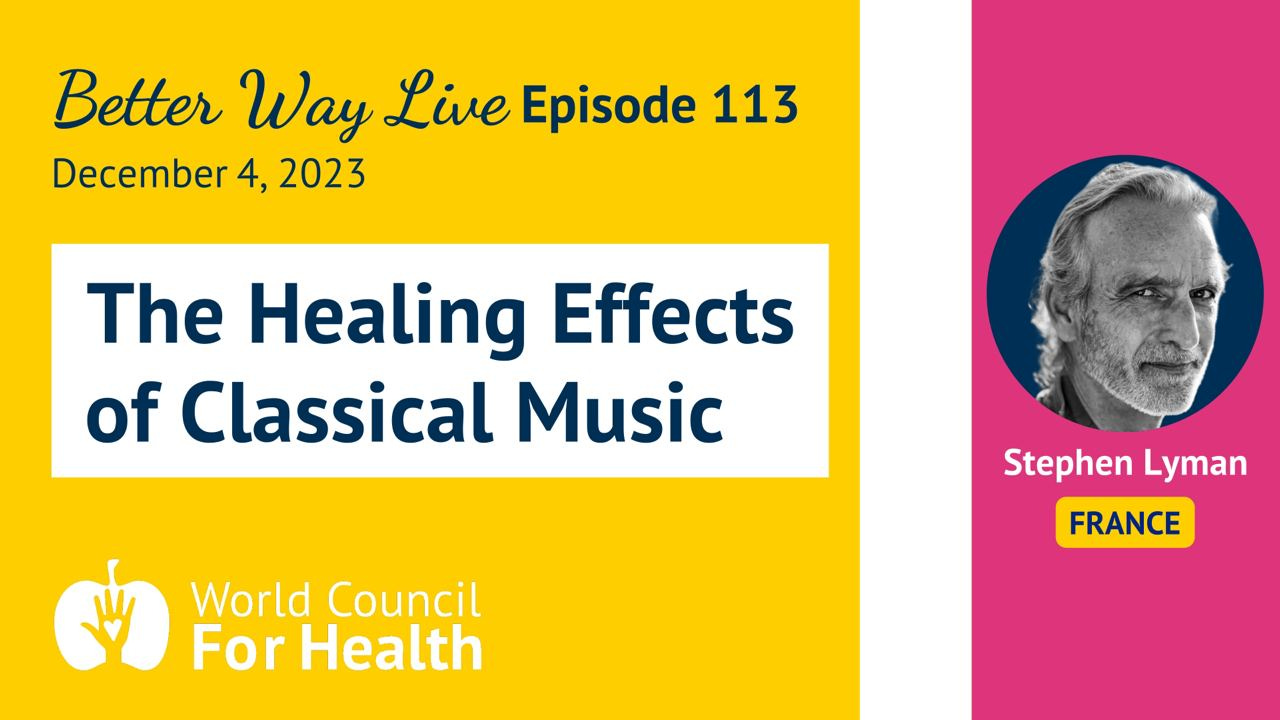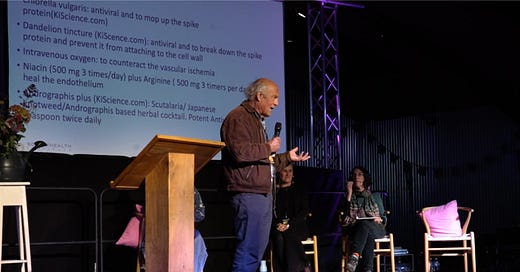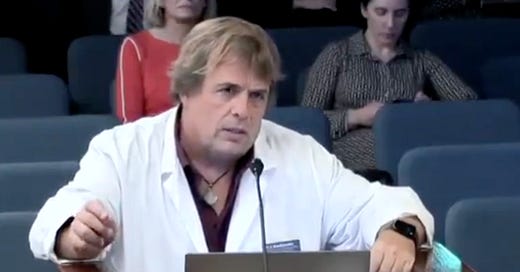
The Power of Spirituality and Music: A Journey to Inner Harmony
At a time when globalist threats to health sovereignty can feel overwhelming, it is good to be reminded of the power of these subtle healing arts to transform lives.
Written by World Council for Health Correspondent Alice Ashwell, PhD.
The World Council for Health’s (WCH’s) Better Way Principle #4 states that “Spirituality is integral to our well-being”. This was the focus of the gently inspiring Better Way Live conversation on Monday 4 December 2023.
Christof Plothe DO and Linda Rae explored the healing effects of a non-dual approach to psychotherapy with Georgi Y Johnson and Amy Ward, after which guitarist Stephen Lyman shared a moving account of the responsiveness of people living with severe autism to the music of JS Bach.
At a time when globalist threats to health sovereignty can feel overwhelming, it was good to be reminded of the power of these subtle healing arts to transform lives.
If you missed the session, you will find the recording on our website.
Navigating Spirituality in Psychotherapy with Georgi Y Johnson & Amy Ward
Watch the full video on our website.
Georgi and Amy are psychologists and mentors who use a non-dual therapeutic approach. Author of the book Non-Dual Therapy: The Psychology of Awakening, Georgi has pioneered a system that works with the qualities of the true nature – such as love, peace, and freedom – as powerful agents of holistic healing. Amy recognises healing and creating as synonymous and is passionate about awakening to true nature through direct experiencing and perception of the wider living natural world.
In response to Linda’s question about what it means to experience life from a non-dual perspective, Amy simply stated, “It’s THIS! It is this direct and undefinable experience of reality … however it’s showing up; and a recognition of the moment, beyond how we conceptualise it.” On the other hand, experiencing the moment through the lens of thought is to experience duality as, in trying to explain phenomena, the mind resorts to choices of “this or that, black or white, here or there.”
For the most part, we live in a state of separation, which arises through the stories we create about reality, in which I (the subject) observe the world out there (the object). Non-duality can be described as being in a state of pure consciousness in which – momentarily – the experience of separation disappears and we see clearly. This experience cannot be added to or taken away from, but it is always changing; it is just THIS.
Georgi described it as the “simple, natural experience of just being ourselves … being centred in our own direct perception.” There is freedom in this state of being …
A non-dual approach to psychotherapy involves approaching mind, heart, and body as a direct and integrated experience. Unlike most other therapeutic approaches, the goal is not freedom from suffering; rather, suffering is experience, and experience is life; thus there is a movement towards the experience. In non-dual therapy there is the opportunity to find freedom within the experience of suffering, to move through it and develop the confidence to bear the pain.
There is vitality and potency in this radically different approach. A beautiful feature of nonduality is that, as happiness arises, it overflows, moving naturally towards places where there is sadness and bringing opportunities for healing.
The non-dual therapist works with the true nature of the client, resourcing their essential qualities of love, peace, playfulness, and freedom. If the person cannot access a sense of being lovable in their own nature, for instance, they may be encouraged to sense the vibration of love as experienced in nature ‘out there’, which can awaken their own true loving and lovable nature. Resourcing the qualities of a person’s true nature enables them to contain areas of suffering.
Amy and Georgi explain that the non-dual approach is valuable in working with trauma. Once again, rather than trying to get rid of the memory of a traumatic experience, the approach is to explore the experience of shock, for instance, which Amy observes is “like a frozen form entangled in time and space.” Georgi explains that where there has been dissociation, the non-dual process enables clients to consciously re-experience the state of shock, which helps them to access resources like freedom or peace, which in turn allows reintegration back into the body. She notes that “Dissociation is part of naturalness – and when we explore it actively as a resource, we often get incredible psychological resources to help the healing process move forward.”
For more on this deeply accepting approach to healing, you are invited to listen to the whole conversation with Georgi and Amy.
Exploring the Healing Effects of Classical Music with Stephen Lyman
Watch the full video on our website.
Stephen is a freelance classical guitarist who has devoted himself to the complete works of JS Bach. In 2012 he moved to Paris, where he discovered the gift of working with people with autism. He describes autists, especially those who are non-verbal, as the “most profoundly engaging audience I’ve ever experienced.”
In Paris, Stephen has performed in many historic churches, including one in the grounds of the Pitié-Salpêtrière University Hospital, where the Priest invited him to work in an asylum for severely autistic individuals. In the adult section of the asylum, the residents lived in small rooms and spent most of their days in bed with the sheets drawn up over their heads, not engaging with anyone. Their participation in the weekly music programme was entirely voluntary. The first time he performed, Stephen started playing his guitar in the small activity room, leaving the door ajar. Soon, at their own initiative, all the residents entered the room, some staying for the entire 40-minute session. This had never happened before. Looking back, Stephen is certain that none of them would have arrived had he simply put on a recording. For them, music is a living event in which they engage inter-subjectively.
Music is a healing medium that Stephen views as a living event shared between two or more individuals. Here he describes his approach to performing:
Stephen explains that many non-verbal autists – even young children – are drawn to what he calls high quality “music with integrity”. They sense what is authentic, and it is up to him to simply present the music. In fact, his autistic clients have helped him to discover a deeper value in the music.
Although these individuals usually appear extremely withdrawn, during performances they establish eye contact and become engaged and involved with Stephen inter-subjectively. For the full hour they engage with the music, expressing emotions that reflect the mood of the music. But once he turns to put his guitar away, they leave immediately. For them, the music is nourishment, not entertainment.
Recent research has shown that autistic individuals perceive too much rather than too little. Their senses need to be deprived as they are unable to handle excessive sensory input. When some manage to step out of autism, their great intelligence and capacities become apparent. They possess great integrity as they perceive absolutely everything, have superb intuition, and can discern immediately if a person is sincere or not.
An emerging challenge is the impending tsunami of autism. Humanity is becoming increasingly autistic, with one in thirteen boys in Ireland now being on the autism spectrum. This challenge is also an invitation for humanity to come together to care for one another. In this context, music has a vital role to play.
If you find value in this Substack and have the means, please consider making a contribution to support the World Council for Health. Thank you.




